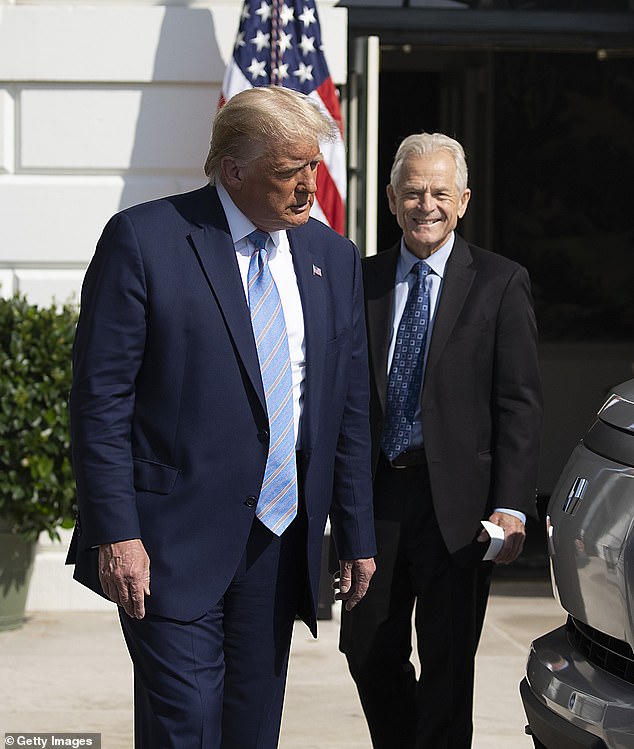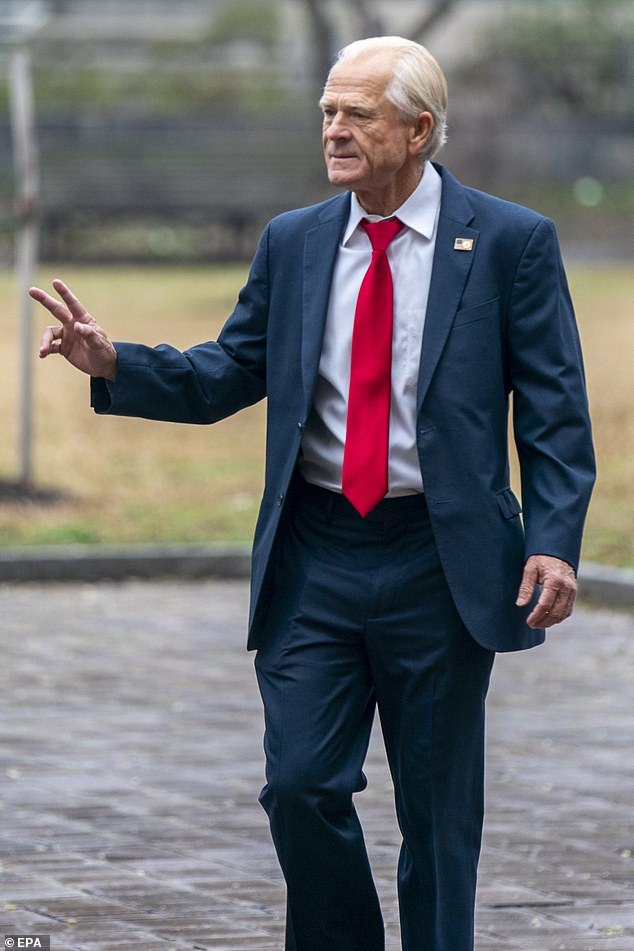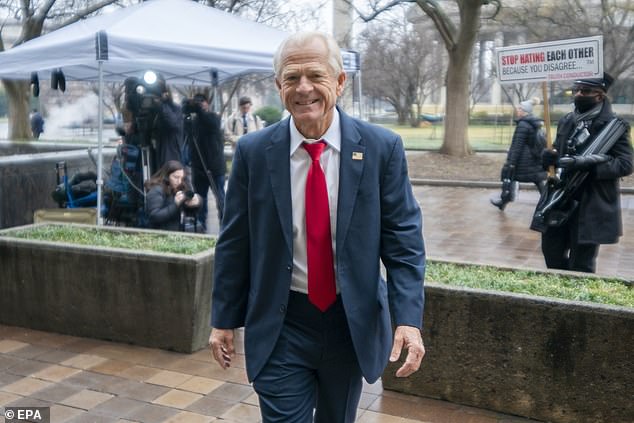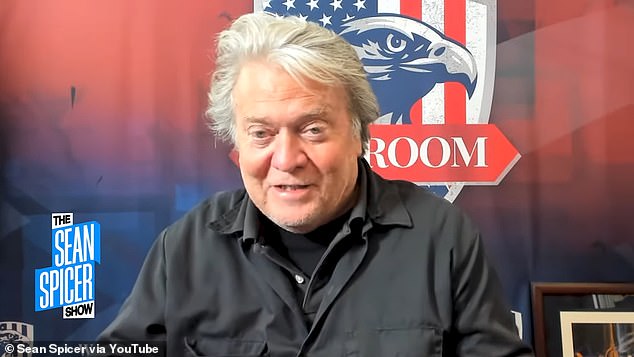Trump White House adviser Peter Navarro sentenced to FOUR MONTHS in prison after being convicted of contempt of Congress for defying a subpoena in the January 6 investigation
Trump White House adviser Peter Navarro has been sentenced to four months in prison for contempt of Congress after he defied a subpoena and refused to cooperate with the investigation into the Capitol riot.
The 74-year-old former trade aide who helped retain Trump after the 2020 election was also fined $9,500 during a hearing in which he insisted his actions were protected by executive privilege.
The Harvard-educated economist who focused on the COVID response in the White House claimed Trump told him to ignore the subpoena and insisted he should be put on probation.
But the judge rejected his defense, telling Navarro that the words “executive privilege” were not a “magic substance” to avoid jail time.
Navarro found himself appealing the four-month prison sentence almost immediately after it was handed down Thursday. It is unclear whether the judge will decide to postpone his sentence pending the appeal process.
Federal prosecutors had sought a six-month prison sentence and a $200,000 fine after he refused to testify before a House committee on Jan. 6.
He is the second Trump aide convicted of defying a subpoena from the Capitol riot, joining Steve Bannon, who is appealing his four-month prison sentence.
Trump White House adviser Peter Navarro was sentenced to prison for contempt of Congress after he defied a subpoena and refused to cooperate with the Capitol Riot investigation

Federal prosecutors are seeking a six-month prison sentence and a $200,000 fine for Peter Navarro, a former Trump trade adviser, both pictured on the South Lawn of the White House on September 28, 2020
Along with Bannon, Navarro devised a plan known as the Green Bay Sweep following Joe Biden’s 2020 victory, in which Republicans in swing states would contest the results.
As he entered the courthouse Thursday, Navarro told reporters that his legal bills are “well over a million dollars” and that 20,000 donors have helped him get through the case.
On the stand, he then said that the “minute the violence broke out” on January 6 was “one of the worst days of my life.”
“Not only was that a desecration of our Capitol, but it marked the end of any rational discussion of the Electoral Count Act of 1887,” he added.
But U.S. District Court Judge Amit Mehta shot down Navarro’s lawyers for claiming he had accepted responsibility for defying the subpoena and trying to blame Joe Biden and Nancy Pelosi for his prosecution.
He also said the words “executive privilege” are not a “magic dust” or a “get out of jail free” card.
‘Mr. Navarro, you are not a victim. You are not the object of any political persecution,” Mehta said.
“These are circumstances of your own making.”
Navarro was found guilty of defying a subpoena for documents and a House committee testimony dated January 6, 2023.
He took the stand during sentencing, arguing that he “honestly believed that the privilege had been invoked.”
“No one in my position should come into conflict between the legislature and the executive branch,” Navarro added.
He promoted the Republican’s baseless claims of massive voter fraud in the 2020 election that he lost.
He vowed to appeal the ruling, saying he could not cooperate with the commission because Trump had invoked executive privilege.
However, a judge banned him from using this argument during the trial, finding that he had not shown that Trump had actually relied on it.

The Harvard-educated economist who focused on the COVID response in the White House claimed Trump told him to ignore the subpoena and insisted he should be put on probation

He said he has had more than 20,000 small donors “help” him during his legal battle

Navarro is the second Trump aide convicted of defying a Capitol Riot subpoena, joining Steve Bannon, who is appealing his four-month prison sentence.
Justice Department prosecutors say Navarro tried to “hide behind claims of privilege” before he knew exactly what the commission wanted, and showed a “contempt” for the commission that should warrant a longer sentence.
Bannon, 70, was sentenced to four months behind bars, although he was at large while he appealed his conviction.
Navarro’s conviction comes after a judge rejected his bid for a new trial. His lawyers had argued that jurors may have been improperly influenced by political protesters outside the courthouse as they took a break from deliberations.
Shortly after their break, the jury found him guilty of two felony counts of contempt of Congress.
But U.S. District Judge Amit Mehta ruled that Navarro did not show the eight-minute pause had any effect on the September sentence.
There was no protest going on and no one approached the jury – they only interacted with each other and with the court official assigned to accompany them, he discovered.
Stanley Woodward, Navarro’s attorney, declined to comment on the upcoming proceedings.
